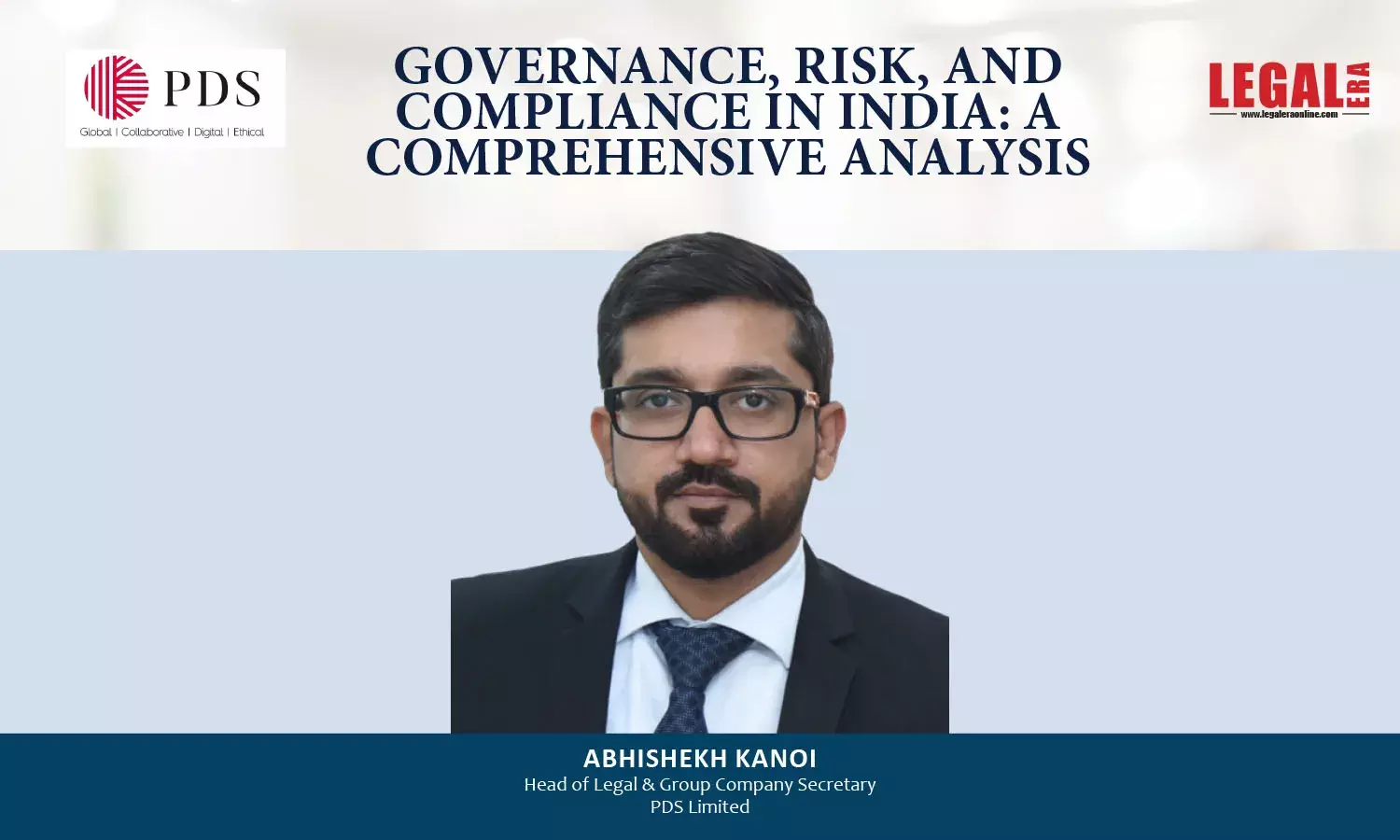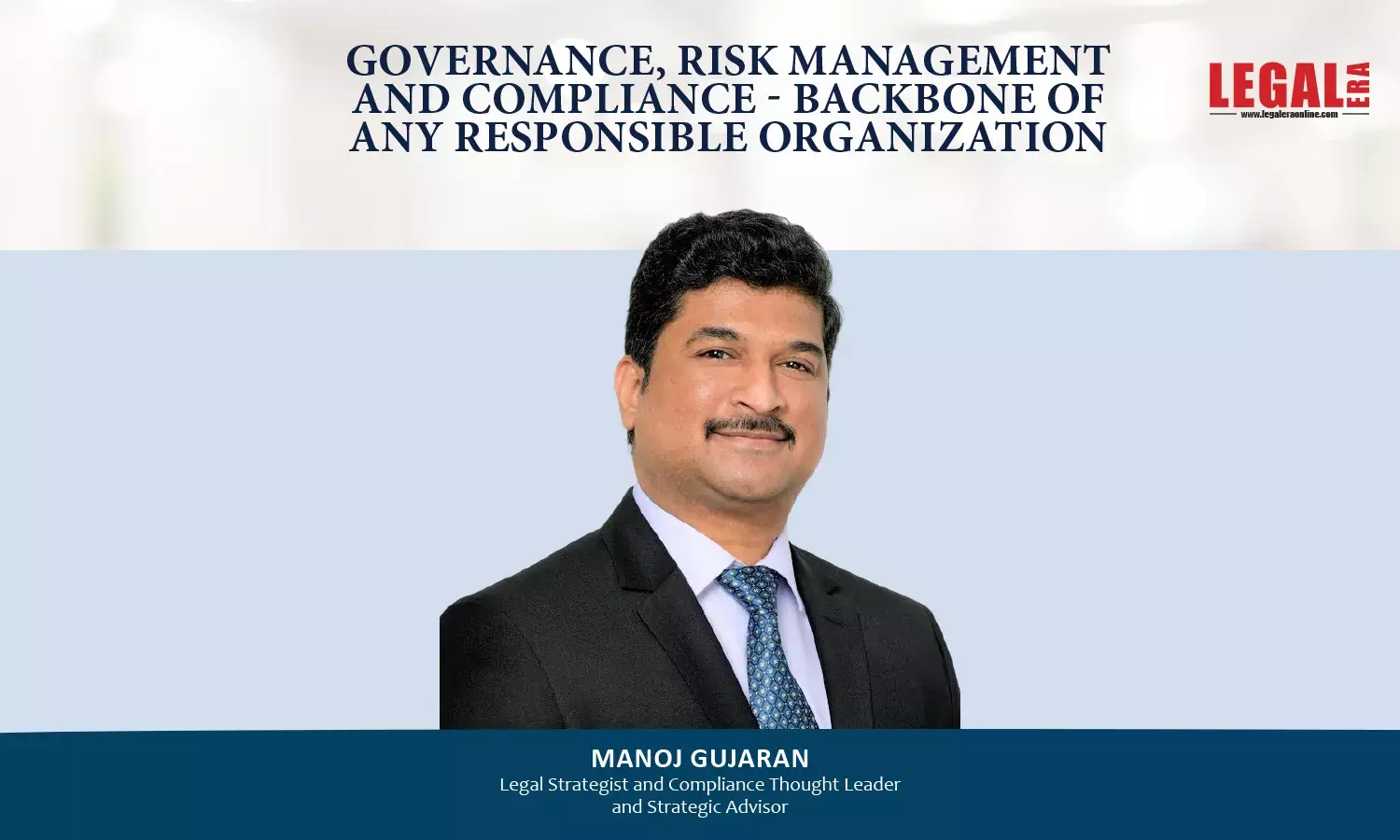Governance, Risk, And Compliance In India: A Comprehensive Analysis

Governance, Risk, And Compliance In India: A Comprehensive Analysis A robust GRC framework is not a luxury, it is a necessity for sustainable growth in India’s competitive and regulated business environment Governance, Risk, and Compliance (GRC) is more than just a corporate buzzword. It is a critical framework for businesses navigating India’s complex regulatory landscape. In an era...
Governance, Risk, And Compliance In India: A Comprehensive Analysis
A robust GRC framework is not a luxury, it is a necessity for sustainable growth in India’s competitive and regulated business environment
Governance, Risk, and Compliance (GRC) is more than just a corporate buzzword. It is a critical framework for businesses navigating India’s complex regulatory landscape. In an era marked by heightened scrutiny, rapid globalisation, and technological evolution, a robust GRC mechanism is indispensable for organisational resilience, reputation management, and sustainable growth.
This article provides a detailed exploration of the GRC framework in India, addressing its importance, the consequences of inadequate systems, and the role of key stakeholders like General Counsel, Company Secretaries, promoters, and management. It also examines recent corporate scandals and provides actionable recommendations for organisations to enhance their GRC practices.
1. Understanding Governance, Risk and Compliance:
Governance ensures that an organisation operates ethically and transparently, balancing the interests of stakeholders. Risk management involves identifying, assessing, and mitigating threats to the organisation’s objectives. Compliance focusses on adhering to laws, regulations, and standards.
In India, the regulatory environment is shaped by:
- The Companies Act, 2013: Governs corporate behaviour, disclosure norms, and financial accountability.
- Securities and Exchange Board of India (SEBI): Regulates listed entities, ensuring corporate governance, transparency and investor protection.
- Reserve Bank of India (RBI): Supervises financial institutions to maintain economic stability, feasibility and viability.
- Sector-Specific Regulations: Include guidelines for industries like healthcare, telecommunications, and technology.
2. The Cost of Poor GRC Mechanism:
Poor GRC frameworks expose organisations to significant risks:
a. Financial Risks
Non-compliance with regulatory requirements often results in penalties, litigation, and operational disruptions. For instance, the recent GoMechanic fraud (2023) revealed inflated revenues and governance failures, leading to the loss of investor trust.
b. Reputational Risks
Corporate scandals can erode public trust, impact brand equity, and diminish market value. The NSE co-location scam showcased how breaches of ethical governance could tarnish an institution’s credibility.
c. Operational Inefficiencies
Fragmented decision-making and inadequate risk management mechanisms can lead to inefficiencies and missed opportunities.
Case in Point: IL&FS Crisis
The IL&FS fiasco highlighted systemic governance failures, exposing the ripple effects of weak oversight, inadequate risk management, and regulatory complacency.
3. The Evolving Role of General Counsel in GRC
The General Counsel is no longer just the chief legal officer; they are now a strategic advisor influencing corporate governance and risk strategies. The General Counsel (GC) is a pivotal figure in modern organisations, serving as the anchor for legal strategy, corporate governance, risk management, and compliance. Their role extends beyond traditional legal advisory to becoming a strategic partner in shaping the organisation’s ethical, regulatory, and operational landscape.
Governance:
As a key advisor to the board and executive leadership, the GC ensures that governance structures are robust and aligned with the organisation’s goals. They facilitate informed decision-making by providing insights into legal and regulatory frameworks and fostering a culture of accountability and transparency. In environments where decision-making is concentrated, such as promoter-driven organisations, the GC plays an essential role in balancing founder vision with institutional governance to ensure long-term sustainability and stakeholder trust.
The General Counsel’s role goes beyond managing legal risks; it is about being a strategic partner to the board and leadership, providing trusted counsel on complex legal matters, and shaping the company’s governance and compliance framework to drive sustainable success
Risk Management:
Risk is inherent in all business decisions, and the GC is at the forefront of identifying, mitigating, and managing these risks. They design frameworks to evaluate legal, regulatory, and reputational risks while ensuring these align with the organisation’s strategic objectives. Whether in a multi-stakeholder corporation or a promoter-led entity, the GC must navigate a fine line encouraging growth and innovation while safeguarding the organisation from unnecessary exposure to risk.
Compliance:
In a complex and ever-evolving regulatory environment, the GC ensures that the organisation adheres to all applicable laws and standards. Beyond ensuring compliance, they embed a proactive culture of ethical practices and regulatory awareness. In promoter-driven organisations, this requires aligning compliance measures with the vision and values of the founders without compromising the integrity or operational agility of the enterprise.
Bringing a Holistic Perspective:
The GC’s role is inherently dynamic, adapting to the unique challenges and opportunities presented by different organisational structures. In any setting, be it a multinational corporation, a family-owned business, or a promoter-driven enterprise they are instrumental in bridging the gap between business goals and legal imperatives. By integrating their legal expertise with business acumen, GCs act as catalysts for sustainable growth, ensuring that governance, risk, and compliance are not merely obligations but enablers of long-term success.
In sum, the General Counsel’s role is a cornerstone of modern organisational resilience. By harmonising governance, risk, and compliance with strategic priorities, they create a foundation where innovation thrives within the bounds of accountability and ethical integrity.
4. The Evolving Role of Company Secretary in GRC
The Company Secretary plays a critical role in ensuring the seamless integration of GRC within an organisation. As a key interface between the board of directors, regulatory authorities, and stakeholders, the CS ensures that the organisation adheres to its legal obligations while fostering a culture of transparency, accountability, and ethical conduct.
Governance:
The CS is the custodian of good governance practices, facilitating the board’s effectiveness and ensuring compliance with statutory and regulatory frameworks. They manage board processes, including meeting organisation, agenda setting, and accurate recording of minutes, ensuring that decisions are made transparently and aligned with the organisation’s goals. In environments such as promoter-driven organisations, the CS plays a vital role in balancing founder-centric decision-making with institutional governance, fostering a structure that supports both agility and accountability.
Risk Management:
A Company Secretary contributes significantly to the identification and management of risks, particularly those related to regulatory and corporate compliance. They ensure that the organisation is prepared for changing regulatory landscapes and mitigate risks associated with non-compliance. By working closely with other risk management functions, the CS ensures that the board is informed about potential risks and the measures in place to address them. In unique organisational contexts, such as family-owned or promoter-led entities, the CS’s role includes aligning risk management strategies with the founders’ long-term vision.
Compliance:
The CS ensures that the organisation complies with corporate laws, securities regulations, and industry-specific requirements. This involves maintaining statutory registers, filing returns, and liaising with regulatory bodies. In addition to legal compliance, the CS fosters a culture of ethical behaviour and accountability across the organisation. In promoter-driven organisations, where decision-making may be concentrated, the CS ensures that compliance frameworks are practical and aligned with the operational ethos, without compromising legal and regulatory obligations.
Bringing a Holistic Perspective:
The Company Secretary’s role is dynamic and extends beyond mere compliance to becoming a trusted advisor to the board and management. They provide insights into emerging governance trends and regulatory developments, helping the organisation navigate complexities with confidence. Whether in a large multinational or a closely-held promoter-driven business, the CS ensures that governance and compliance are enablers of strategic goals rather than mere administrative functions.
In conclusion, the Company Secretary is a cornerstone of the GRC framework, ensuring that the organisation operates within a framework of integrity, accountability, and compliance. Their contribution is instrumental in building resilient organisations where governance structures and risk management practices enable sustainable growth while safeguarding stakeholder interests.
5. Promoters & Management – Pillars of GRC
a. Visionary Leadership
Promoters and management must prioritise ethical governance as a cornerstone of the organisation’s culture. This includes defining clear roles and responsibilities for GRC teams and championing accountability.
b. Resource Allocation
Investing in cutting-edge technology, training, and GRC expertise is essential to empower teams and streamline compliance processes.
c. Monitoring & Evaluation
Establishing robust internal controls, regular audits, and performance reviews helps identify gaps and implement timely corrective measures.
d. Support for GC and CS
Promoters and management must create an environment that enables GC and CS to function independently and effectively, free from undue influence.
6. Enhancing GRC Mechanisms: A Roadmap
1. Leverage Technology: Use AI, blockchain, and data analytics to identify risks, monitor compliance, and ensure data integrity.
2. Conduct Regular Audits: Evaluate governance and compliance frameworks periodically to address vulnerabilities.
3. Promote Ethical Culture: Foster a culture where ethics and accountability are ingrained across all organisational levels.
4. Stay Ahead of Regulations: Monitor global and domestic regulatory trends to anticipate and adapt to changes proactively.
Conclusion
A robust GRC framework is not a luxury, it is a necessity for sustainable growth in India’s competitive and regulated business environment. The collaboration of GCs, CSs, promoters, and management is vital in fostering a culture of integrity, accountability, and resilience. By investing in strong GRC systems, organisations can mitigate risks, enhance stakeholder trust, and secure long-term success.
Ref:
1. The Companies Act, 2013
2. SEBI Annual Reports (2023-2024)
3. Case Studies: IL&FS Crisis, NSE Co-location Scam, GoMechanic Fraud
4. Articles from The Economic Times, Business Standard (2023-2024)
5. Insights from Infosys and Wipro Governance Practices
Disclaimer – This article represents my personal thoughts and perspectives on the subject of Governance, Risk, and Compliance in India. It is not reflective of the policies, opinions, or strategies of my employer or any associated organisation. The insights and views shared are for informational purposes only and should not be considered as legal, financial, or independent professional advice. Readers are encouraged to consult experts for tailored guidance relevant to their specific circumstances.
The information provided here is based on my understanding of the subject matter and publicly available data at the time of writing. I am not liable for any decisions taken based on the content of this article.





